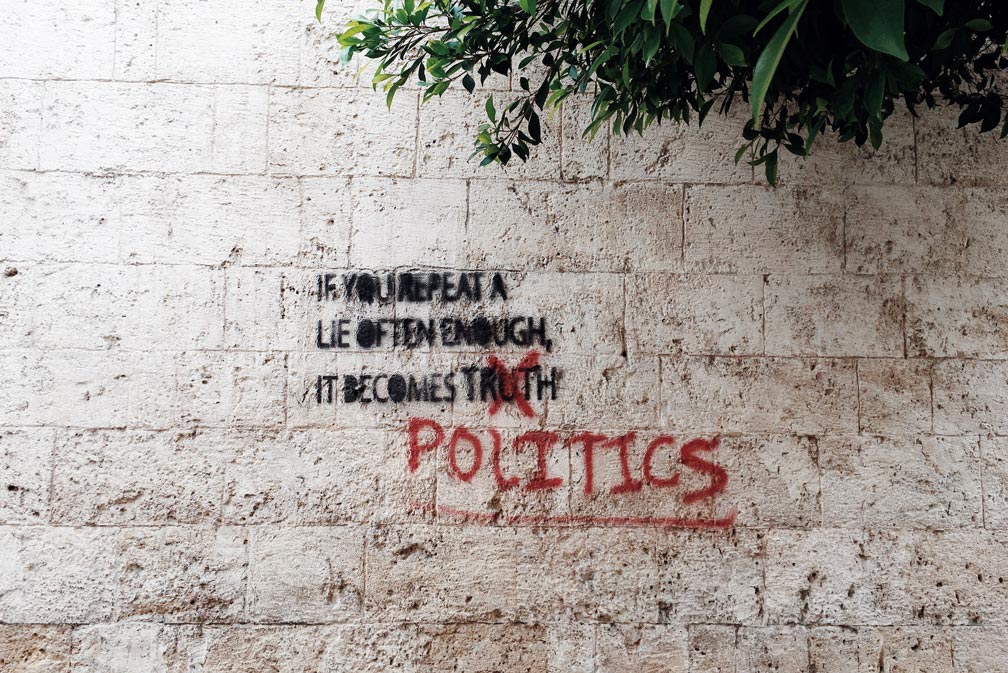
What to do when people use religion as an excuse for homophobia

Last month in Tennessee, Republican candidate Shane Reeves defeated his Democratic opponent, Gayle Jordan, in a landslide special election. Nothing strange there. Mainstream political opinion in the state is the kind that would make Donald Trump seem liberal, but what was telling was the nature of the campaign.
Despite being nailed on to win from the start, Republican and Christian groups still thought it necessary to run an extensive smear campaign focusing on her atheism. It proves that, in this day and age, it’s almost impossible to be elected unless you subscribe to a religion.
In 2016 it seemed as if that was about to change. Jamie Raskin looked set to become the first person in Congress to openly describe himself as a non-believer. But, at the last minute he changed his mind and said that he was, and always had been, Jewish. Today Congress remains an atheist free zone.
That puts them at odds with the rest of America which is becoming progressively more atheist. More and more people describe themselves as having no religion, but politicians seem to be working harder to distance themselves from the tag.
Here in the UK the numbers are even higher. In September, a report found that a record number of people in the UK don’t believe in God. More than half of British people questioned said they are not at all religious. Even so, faith and politics remain intertwined.
When Conservative MP James Arbuthnot came out as an atheist in 2015, he said there was still pressure on Tories to pretend to be religious. The only reason he had come out of the closet now, he said, was because he was standing down at the next election.
There is of course nothing new about religion in politics. It’s been there since European monarchs claimed to have been appointed directly by God. It’s a bit like me telling you to give me all your money otherwise you’ll make an invisible sky monkey which only I can see or hear extremely angry…
…and then you believing me.
But it continues in our modern, and theoretically, more enlightened world. Theresa May says her faith gives her confidence that she is doing the right thing – even if events might suggest otherwise. Tony Blair felt he was waging a Christian battle against evil when he went to war in Kosovo and Iraq. George W Bush believed God wanted him to be President and told him to invade Iraq.
Voters seem to like it. Research from the US suggests that voters have a more negative view about atheists than any other demographic. While we might reassure ourselves that this is a uniquely American problem the same attitudes hold sway all over the world.
A study conducted by Will Gervais of the University of Kentucky found negative attitudes towards atheists – even among people who did not believe in God.
“People seem to assume religion is an integral element of morality, that without it people are moral wild cards with nothing to keep them honest,” he said. “Why shouldn’t they be lying, stealing and raping?”
Studies like that are why politicians continue maintain their faith even if they don’t have one. They’re why Mark Zuckerberg decided to say his atheist days were behind him, just as rumours emerged that he might be considering a run for the White House.
They’re also why religious groups continue to hold a disproportionate influence in government. Every progressive idea from sex education to same sex marriage, stem cell therapy and women’s rights faces obstacles from faith groups. Centuries after Galileo we’re still fighting the same fight – albeit with slightly lesser consequences.
There is good news. Studies suggest we’re becoming more open and tolerant than ever before. As secularism rises, people are also likely to be more tolerant of people’s sexuality, race and faith. Unfortunately, the opposite is true in politics.
It’s not hard to see why politicians are frightened to be secular. Atheists are less likely to vote than other groups and when they do it’s never as one block. However, until politicians find a way to break their addiction to religion they will continue to move away from the people they represent.
 Tom Cropper has spent the last 15 years writing mainly about business, technology, politics and anything else he can persuade people to publish.
Tom Cropper has spent the last 15 years writing mainly about business, technology, politics and anything else he can persuade people to publish.
Follow Tom on twitter @Cropp77